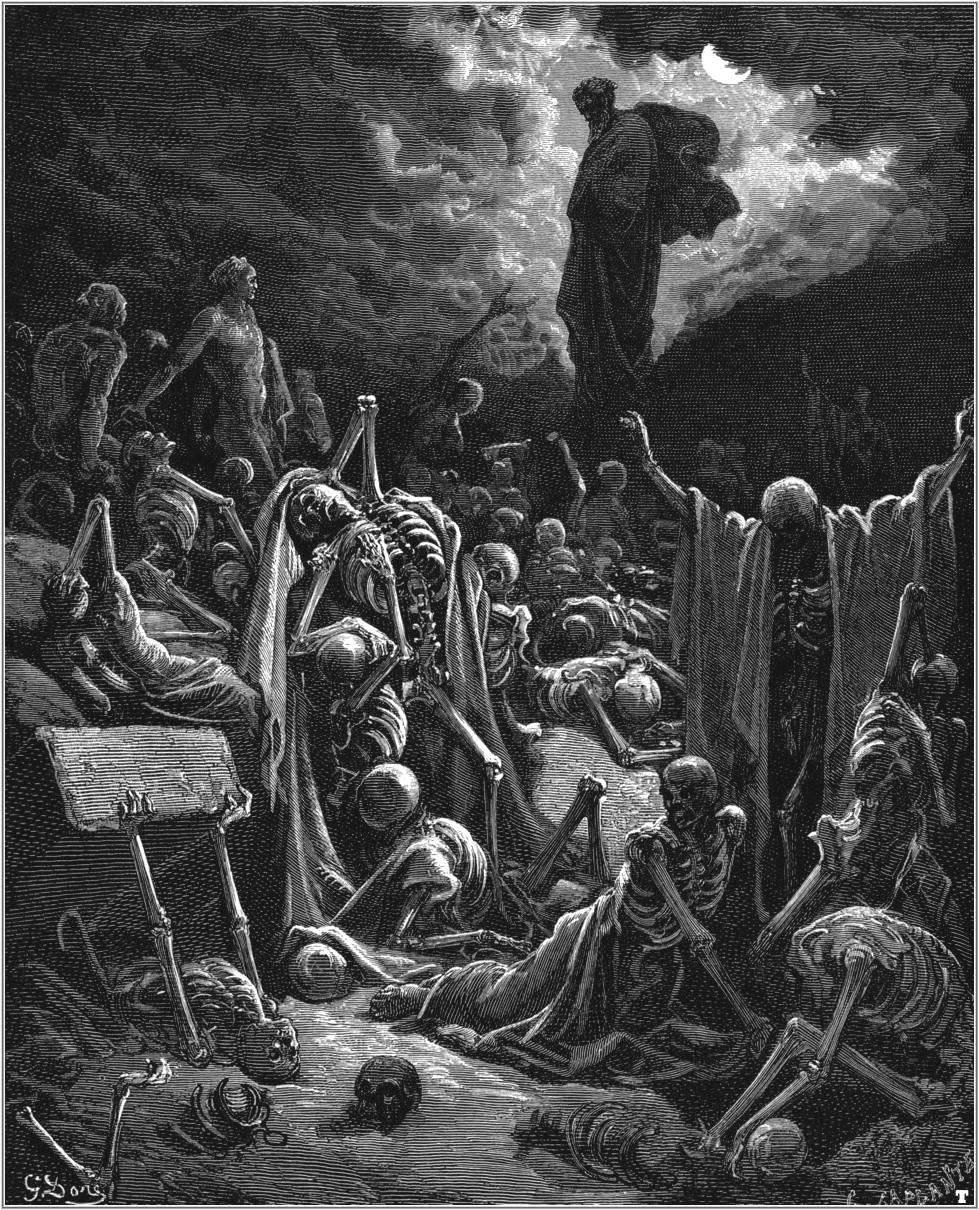
Ezekiel's valley of dry bones
In Ezekiel chapter 37 (Ezekiel 37:1-14) we read about a compelling vision of the prophet within the context of his own time and what was to come. It holds both literal and symbolic tensions pertaining to Israel and the world. This is a concise overview of what is going on in the text according to exegetical means and using available commentaries.
First: Exiles of Israel
Within Ezekiel's world view and his understanding at the time, this was a prophecy given by God to the prophet for the nation of Israel (Ezekiel 37:11-12). The purpose was to comfort them, that they would be made a nation again, in their own country, restored as a whole nation, with life and breath in it, a restoration of hope. At the time Israel was under occupation and dispersion by Nebuchadnezzar of Babylonia.
Second: Condition of humanity
At the time Ezekiel would not have been thinking that this prophecy might have related to the coming Messiah, or the world-wide condition of individuals through time, according to Ephesians 2:1-3, in particular Ephesians 2:1 - And you were dead in the trespasses and sins,... past tense, the church is made alive through the vicarious death of Christ.
We can say that Ezekiel is a type and shadow of Christ, an insight into what Christ accomplished at calvary and has made us alive and called life into our deadness under sin.
Third: The resurrection
We may also be pointed to the last day resurrection of all mankind and the work of the Holy Spirit in the current age, in particular John 5:28-29 (also see: John 6:40, John 11:24-25, Romans 8:11, 1 Corinthians 6:14, Luke 14:14, John 14:19, 1 Thessalonians 4:16). But we should be cautious with this idea, as with the second point above, we only see these things in this particular text because we have hindsight that Ezekiel did not have, we are truly blessed (2 Peter 1:19-21).
Source(s):